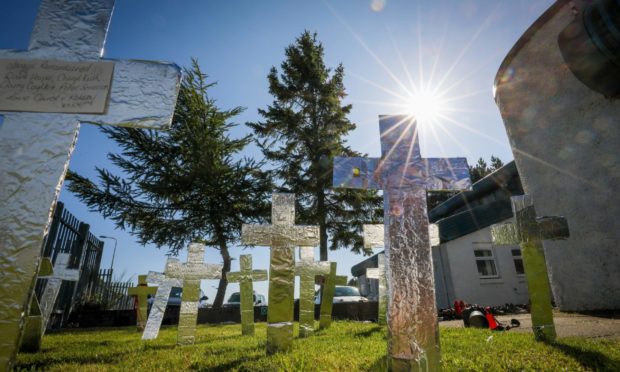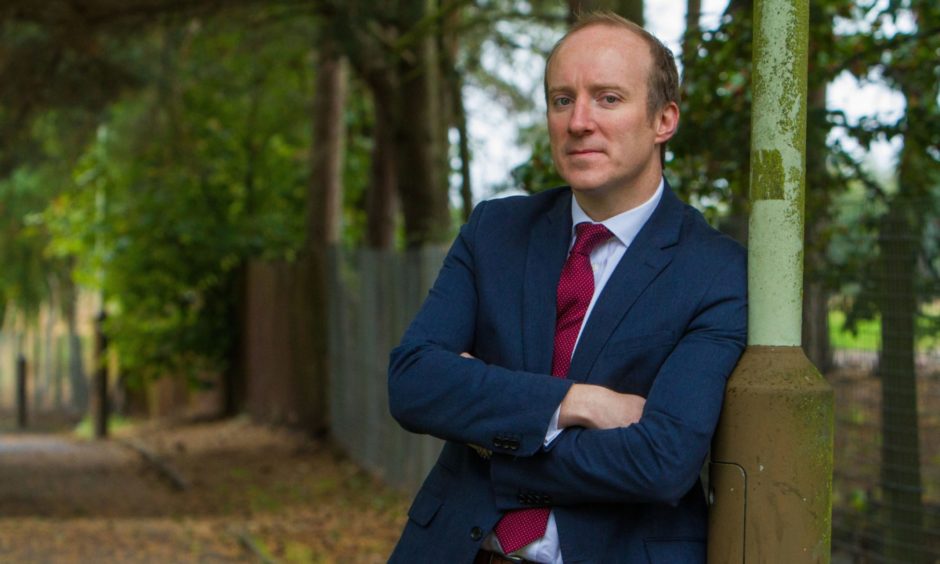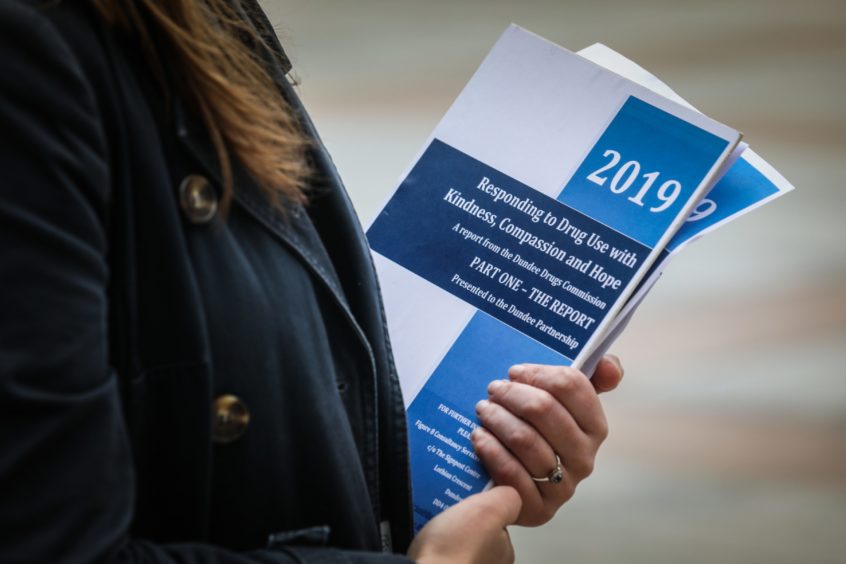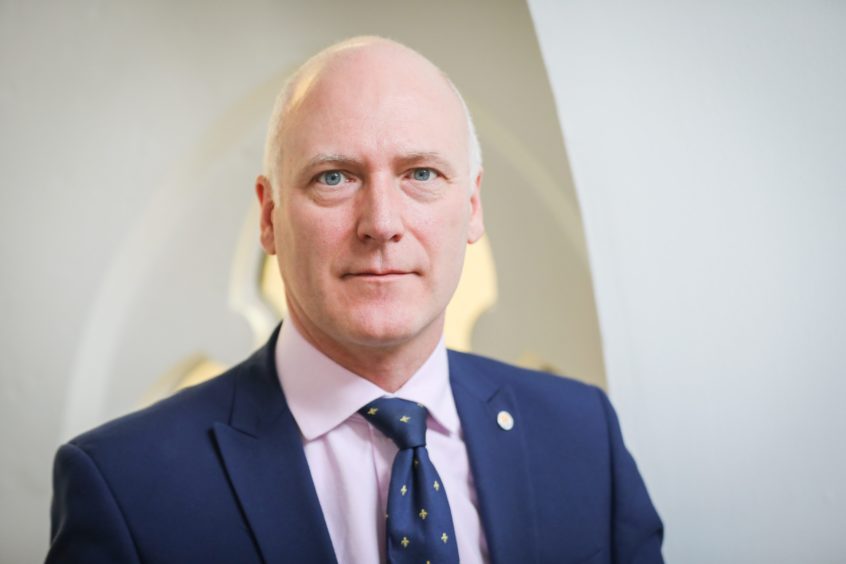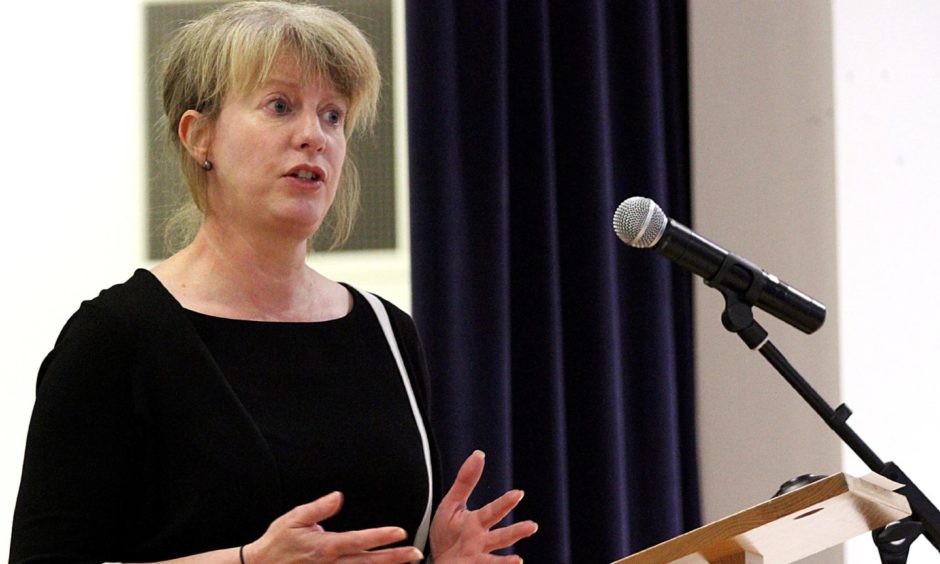Politicians from across the north east have been urged to attend a first of its kind cross-party summit to tackle Dundee’s drug deaths crisis.
Newly-elected North East Labour MSP Michael Marra has written to colleagues elected to the Scottish Parliament over the weekend in a bid to bring voices from across the political spectrum together and find new solutions.
It comes amid a call for Tayside residents to be given greater access to rehab and substance misuse treatment beds after new figures revealed numbers have dropped by almost a third in three years.
A harrowing record
Dundee retained its unenviable position as drug deaths capital of Europe last year after figures showed fatalities from abuse increased from 66 in 2018 to 72 in 2019 – the sixth consecutive year deaths have been on the rise in the city.
Meanwhile, National Records of Scotland statistics showed 1,264 people died from drug-related causes in the country in 2019 – more than for every other European country combined and approximately 3.5 times higher than the rest of the UK.
Dundee MSPs Joe FitzPatrick and Shona Robison were re-elected over the weekend alongside North East regional list candidates Mr Marra, Liam Kerr, Douglas Lumsden, Maurice Golden, Tess White, Mercedes Villalba and Maggie Chapman.
We reported last week how Michael Collins, a Scots drug policy expert who helped push decriminalisation in the US criticised Scotland’s political leaders for failing to put the country’s “dreadful” drug deaths record at the heart of the election campaign.
Mr Marra has written to the cohort of new North East representatives, in his first act as an MSP, and said he believes “all of those elected will have something to offer this vital area of work”.
Saving lives
Mr Marra wrote: “As members of the Scottish Parliament with responsibility for representing Dundee, I would like you to join me in convening a Standing Committee on Dundee Drugs Deaths.
“I would propose that we meet quarterly to appraise this crisis on a cross-party basis, to examine where we can act collectively, to build our shared understanding and, ultimately, to help address the crisis by saving lives.”
Mr Marra envisions the group working collectively with local partners, agencies and the third sector “to deliver the change that is needed” and hopes to invite them to a meeting of the committee at the end of May.
As deputy director of Dundee University’s Leverhulme Research Centre, Mr Marra has experience in forensic science, leading toxicologists and analysts, and developing the statistical analysis that underpinned the Dundee Drugs Commission.
The independent panel was formed in 2018 to “consider the nature, extent and impact of drug use and to look at drug-related deaths” and made 16 recommendations for change in Dundee, plus eight for elsewhere in Scotland.
However, concerns have been raised that the number of fatalities could rise again as new statistics are released later this year.
Mr Marra described the issue as “complex, multi-layered and stubborn” but said he wants local politicians to “use our mutual efforts as parliamentarians to work as one to improve the lives of those who have placed their confidence in each of us”.
“I am sure others will have insights and experience of all kinds to bring,” he said.
“We also need to build a shared understanding of the character of the challenge – who, where, what and why. Only then will we understand what works and how we can make policy that works.
“As a born and raised Dundonian this is of huge importance to me. The people dying were my school mates, guys I went to the football with. The numbers are sickening and all indications are that they are set to get worse.”
Merit in coming together
SNP MSP Angela Constance was brought in as a designated drug policy minister after last year’s harrowing figures led to the resignation of Dundee West representative Joe FitzPatrick as public health minister.
In a joint statement with Dundee East MSP Shona Robison, who also has experience of trying to get to grips with the issue as a former health secretary, Mr FitzPatrick agreed there is “merit in coming together”.
The pair said the crisis is “something that all politicians should work together on in a constructive manner” and that as Dundee MSPs they have met on a regular basis with those taking forward the work of the Dundee Drugs Commission.
“We agree that there is merit in coming together as politicians to discuss the progress being made to tackle the crisis”, they said. “This should also include Dundee’s MPs given so much of drugs policy is unfortunately reserved to Westminster.
“The precise form that such a group takes should be for those who agree to meet and discuss further on a constructive cross-party basis, and we would be happy to meet with others on that basis.”
It is understood the four Conservative members elected on the North East list would support more discussion focusing on Dundee, and the public health and justice powers already devolved to Holyrood.
Drug policy minister Angela Constance has promised a multi-spectrum approach to tackling the country’s drug deaths crisis and more than £250 million of new funding has been announced under her watch.
However, official figures obtained from NHS Tayside under Freedom of Information legislation show that the 26 drug rehab and 12 inpatient substance misuse beds available in the region in April 2018 have now fallen to just 26 in total.
Eye off the ball
First minister Nicola Sturgeon has admitted her government “took our eye off the ball” on drug deaths but insisted she is determined to turn things around.
Scottish Conservative North East MSP Maurice Golden said: “Dundee’s drug deaths crisis has been allowed to fester because the SNP took their eye off the ball.
“Immediate action must be taken and that’s why this year Scottish Conservatives secured £20 million a year for drug rehab facilities. That will save lives.
“Involving addiction charities and the third sector should have happened a long time ago. But this Scottish government already has the powers and the responsibility to do better for the people of Dundee.
“Why it hasn’t used them should be at the top of the agenda.”
